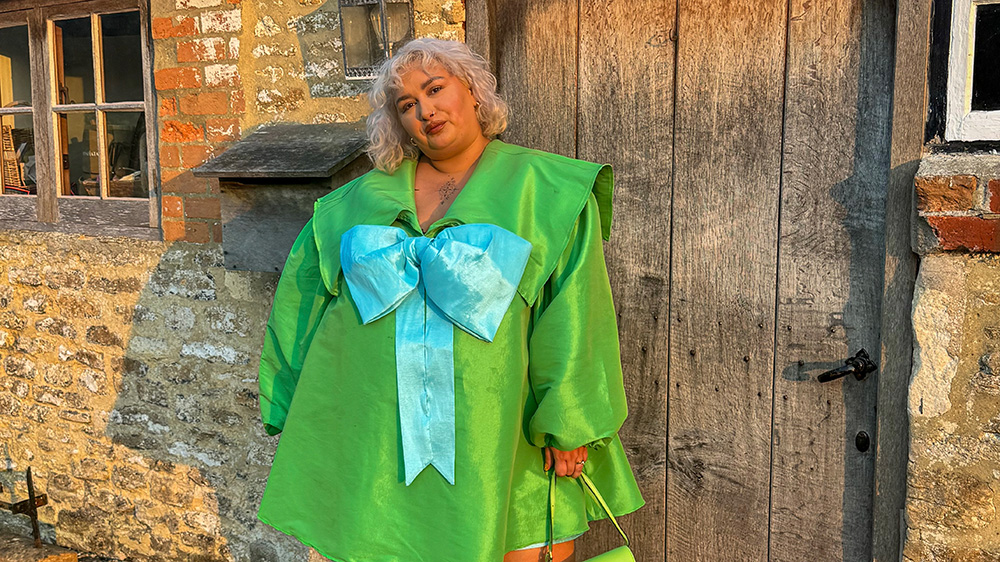Upon claims that the movement has become commercialised, how are influencers being treated by brands, coping with online harassment and dealing with the changing beauty standards?

Scrolling through the store’s website, Michaela eagerly picks out pieces for her shoot. Advertising a new clothing line for a popular online fashion brand that promises size inclusivity is a dream come true.
But the excitement soon fades when Michaela learns that certain clothes do not come in a size 16 or above. As a size 22 woman, she feels completely let down.
Michaela Gingell, a 34 year old content creator, stopped working with the brand because she could not promote clothes to her followers knowing that they did not cater to women of all body types. “The relationship broke down because it was just an empty promise and that was affecting me. I cannot champion a brand where I have said to people [the company] is changing and they haven’t,” says Michaela.
The body positivity movement advocates for the acceptance of body types of all sizes, races, and physical abilities. Brands have taken this message and use it in advertising campaigns with others extending their clothing lines for plus-size people. But many miss the mark, with some only adding a few extra sizes to their ranges people are questioning the sincerity of their motivations.
Thomaï Serdari, professor of marketing at New York University’s Leonard N Stern School of Business told the BBC that companies starting plus-size ranges can feel superficial. “It gives the impression that companies are just trying to grab a share of the market without a real commitment to the community,” says Thomaï.
In Michaela’s experience, the fashion store claimed that they were still working on extending their ranges to accommodate her size but the damage was already done.
Content creators often promote products online, known as influencer marketing. Influencer based advertisement spending in the United Kingdom is forecasted to reach just under £1 billion in 2025, according to Statista, which is more than the print advertising market.
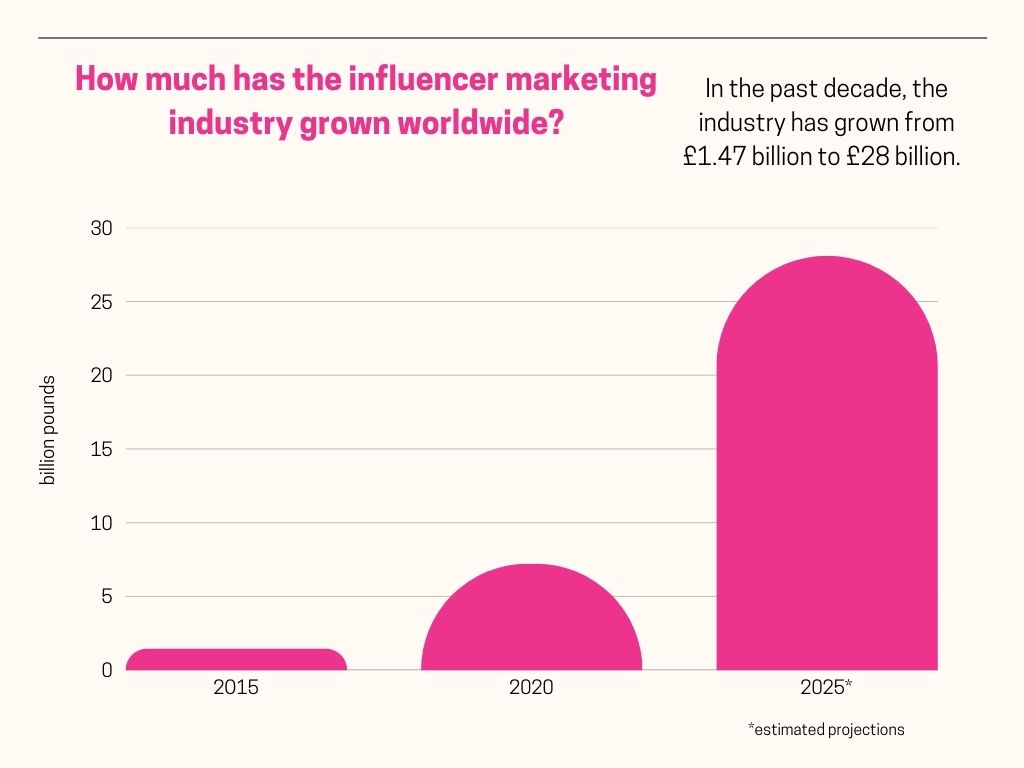
On Instagram, micro influencers who have between 10,000 and 50,000 followers can earn around £100 to £500 per post, according to Limelight Digital. Michaela entered a paid retained contract where she was paid monthly in exchange for posts. But she put her values before her income.
Hannah Ogilvie-Young, a 33 year old plus-size fashion content creator based in Sheffield makes very little from her platform. Hannah estimates that she makes around £600 for three reels and £150 for three images from various collaborations. But on average Hannah makes around £200 a year from her account after she factors in all costs, a fraction of the figure you would need to live on.
But the amount she makes is not the reason she creates her content. “Representation and my social media platforms are so much more important to me that it transcends money,” says Hannah.
Hannah champions positive body image and collaborates with inclusive brands on her platforms, from tights, to anti-chafe shorts, to underwear. Unlike Michaela, Hannah has always been treated well by brands. Reflecting on her collaboration with a clothing company, she says “they are very size inclusive so there was no problem with sizing. If a brand approaches me, I am ten times more willing to work with them if I actually already use their products because obviously I’m already a fan,” says Hannah.
Hannah’s approach mirrors Michaela’s. They both share their love for fashion across their social media teaching their audience that they can wear whatever they want regardless of their size.
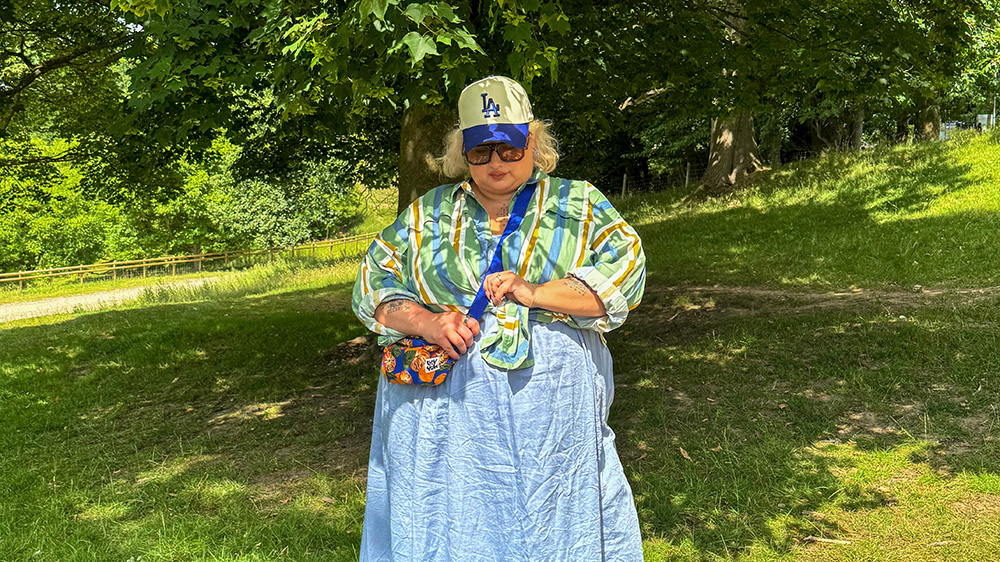
Michaela has gained over 12 thousand followers on Instagram, under the username ‘Cardifforniagurl,’ a nod to her Welsh roots. Although she has a small following, Michaela has used her account to combine her love for travel and her commitment to body positivity. She empowers her audience by posting bikini pictures and outfits of the day.
Across the globe in California, Lilli Helm, a 19 year old content creator, is promoting a different kind of body positivity. Lilli posts candidly about her hormonal acne to her followers.
Skin positivity, an offshoot of the movement, is rapidly gaining attention which aims to address the same problem, the harmful beauty standards.
But having a public platform inevitably comes with hate comments. For Lilli, people like to give her unwanted advice on her skin condition. “Some people will be like ‘you don’t have good hygiene, or you’re never going to find a boyfriend looking like that.’ Some people have said, ‘what are you eating? Are you going to be drinking enough water?’ All the stereotypes you get with having acne,” says Lilli.
Although Lilli was not affected by the negative comments, Michaela had a tough time dealing with online hate.
Michaela’s rise in popularity caught the attention of the BBC who wanted to feature Michaela on their Instagram page, ‘BBC Sesh.’ This was an opportunity of a lifetime, a chance to advocate for what she believed in.
In one video titled ‘thin privilege’ Michaela stands confidently at the camera. She makes a list of different scenarios where plus-size people are treated badly because of the way they look. From eating food in public, to not finding the right clothes, and never being taken seriously by doctors.
The post gained significant traction totaling thousands of views, reaching people all over the globe. “It was really encouraging and inspiring that not even a five minute piece of content could really alter people’s mindset,” says Michaela. “It was a really incredible opportunity to advocate for people who couldn’t advocate for themselves.”
But the joy Michaela felt soon faded when trolls started sending hate messages to her. “I had threats of, they knew where I lived, they knew where I worked that they’d be waiting for me,” says Michaela. “You just simply say, I’m here, I’m fat and I’m existing and there’s people out there who are making my life harder.”
Michaela felt fearful that she was at risk of getting hurt. “Literally anyone could notice me or anything could happen to me. It did make me feel a little unsafe,” says Michaela.
Michaela took a step back from content creation following the backlash. Her experience is not unique with 58% of female influencers decreasing their online presence after being harassed, according to a 2022 report by the Digital Rights Foundation.
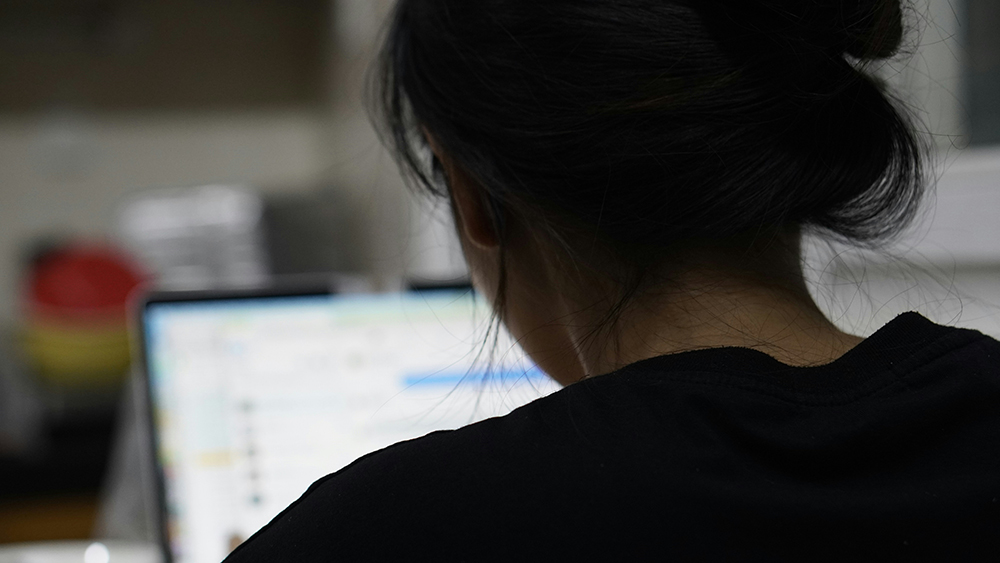
Dr Alexandros Antoniou, a Senior Lecturer in Media Law at the University of Essex explains that female content creators are at a greater risk of online hate. “Women in public life, and that includes social media influencers, journalists and politicians, are particularly vulnerable to coordinated harassment and gendered disinformation campaigns aimed at silencing them or discrediting them,” says Alexandros.
Alexandros further explains that women face a disproportionate level of online harassment. “The picture isn’t simply more of the same abuse faced by everyone online. It is abuse that is systematically gendered in tone, in tactics and impact, with clear spill overs into women’s willingness and ability to participate in public life,” says Alexandros.
Throughout the past 16 years, Michaela has dipped in and out of her online platform. “It became more and more competitive. And I think at points there were elements of the body positive movement being taken away from its sole purpose,” says Michaela.
The past decade has witnessed body positivity flourish on social media. For a while, it felt like progress was being made. Plus-size models graced the runways and influencers were shifting conversations around body image.
Though even at its peak, Michaela had doubts on how sincere the movement was. “I sometimes felt it was a bit of a tick box exercise,” says Michaela. “As we’ve gone on now there are less and less plus-size bodies. I don’t think it’s become a message that they need.”
Representation is super important. So choosing to not represent people of certain body sizes is because you think we shouldn’t be seen. – Hannah
London fashion week only saw seven percent of looks modelled by mid-size or plus-size people. This is down from 13% from the previous season, according to the Vogue Business Autumn/Winter 2025 size inclusivity report.
Anastasia Vartanian, a 25 year old fashion journalist and content creator, has witnessed how the fashion industry treats plus-size people poorly. By working with models she has uncovered how little respect they are shown.
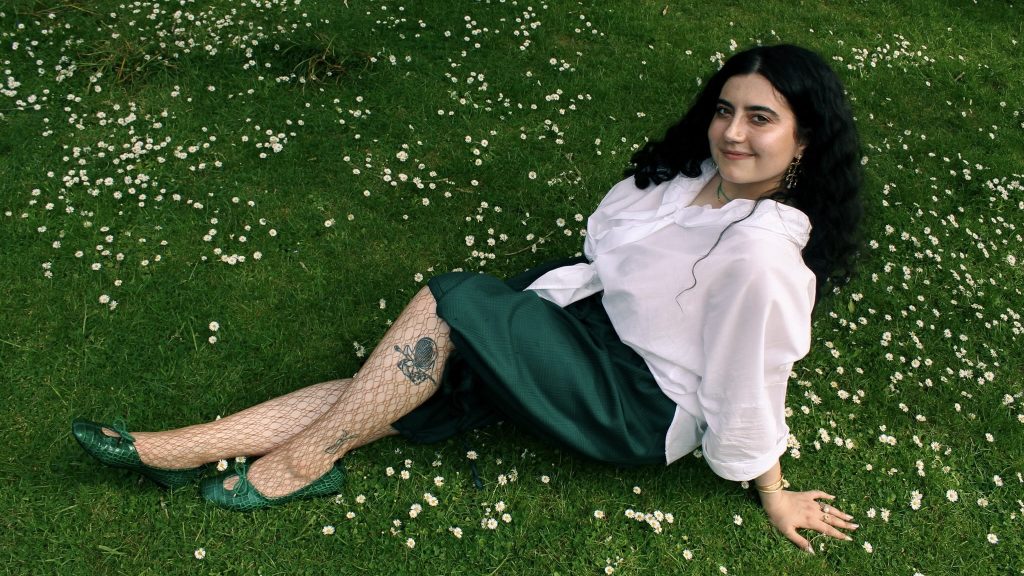
“There was one model, for example, where nothing was really in her size, even though they wanted to shoot her, but they hadn’t really prepared clothes for her,” says Anastasia. “There was another person that had jeans that fit her, but they had nothing that fit her top. So the photographer was like, ‘oh it’s fine let’s just shoot topless.”
Hannah feels that neglecting plus size people allows them to become hidden. “Representation is super important. So choosing to not represent people of certain body sizes is because you think we shouldn’t be seen,” says Hannah.
People have dismissed the body positivity movement as a trend, and one that is going out of fashion. Between weight loss drugs, health and wellness content flooding social media equating skinniness to health, and the return of extreme thinness on the runways. The message is clear, thin is in.
In Anastasia’s view, being thin has always been the standard. “I think even when body positivity was at its peak, being thin was never out, but I think that people didn’t really express it as much,” says Anastasia.
Daniel Mitchell-Jones, co-founder of the modelling agency Chapter Management told the BBC that “Yes, things have shifted. In 2020 and 2021, we saw so much more diversity and inclusion on the runways, but body-wise, that’s taken a backseat now.”
This shift in beauty standards are clear in the companies that reach out to Michaela. Upon checking her inbox Michaela comes across an email from a well known weight management company, asking her if she wants to collaborate with them.
As an advocate for plus-size bodies, Michaela found this alarming. “There was no content or message that I put out in the world that alluded to wanting or needing to use their diet system,” says Michaela. “I do understand in a way why people work with certain brands to pay the bills but not for me.”
Hannah faces similar situations. Different companies reach out to her offering weight loss injections and surgeries. She is asked to share her journey of undergoing these procedures with her audience which she refuses to do. “They see a large person and they think, hey, they must want to lose weight.”
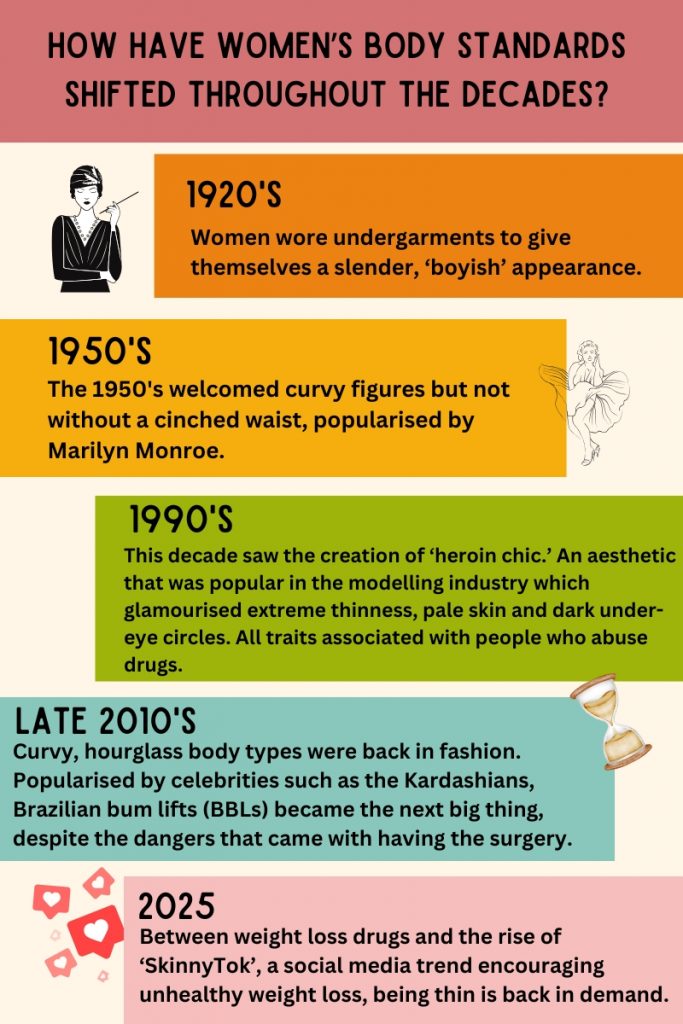
Despite the challenges that content creators face on social media, they still see the beauty in standing up for what they believe in.
Hannah finds joy in making fashion videos showcasing her sense of style. She also shares her ideas through her podcast ‘Fatsonfilm’ where she addresses fatphobia in the media. “I love that my platform challenges the stereotypes people have of plus-size people,” says Hannah. “I want other plus-sized people to take away inspiration, confidence, self-assuredness, that they are allowed to exist.” “[They can] take up space, dress in colours and wild patterns and express themselves.”
“And I just think that’s why it’s so important we keep talking about this, because we are not lazy, we’re not all unhealthy, we are not all frivolous. It’s not that we just stuff our faces all day, we are human beings. We exist, we work, we inspire, we are creative,” says Hannah. “Yet we’re dismissed as transient bodies. We are the before pictures, we are not the afters. We just exist, and we’re allowed to exist as loudly as we want within the bodies we have.”
And when Hannah gets criticised for being a content creator with claims that her work does not matter she reflects on how important her voice is. “I influence people’s perceptions. It’s more than just what I wear, it’s so much bigger than fashion. Fashion’s the doorway, it’s the gateway, it’s what people foresee of me. They go ‘hey that girl’s got a great outfit on, follow’ then they hear what I have to say,” says Hannah. “That completely changes everything and that’s what’s so powerful about it.”
Michaela’s relationship with her body has evolved reflecting on what she posts to her audience. “I have always been plus size and I think I have always advocated for it. I have not always been happy with my body but the older I grew, I just realised I need to live my life no matter what size or weight I am,” says Michaela. “I have still got messages from people who are like, ‘oh my gosh, you are living an incredible life and you look like me and you have inspired me,’ and I think maybe that’s enough.”
